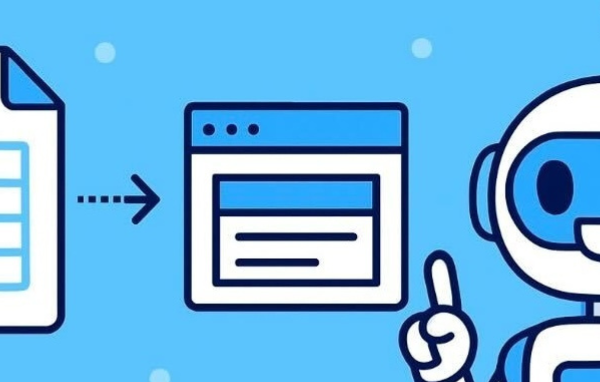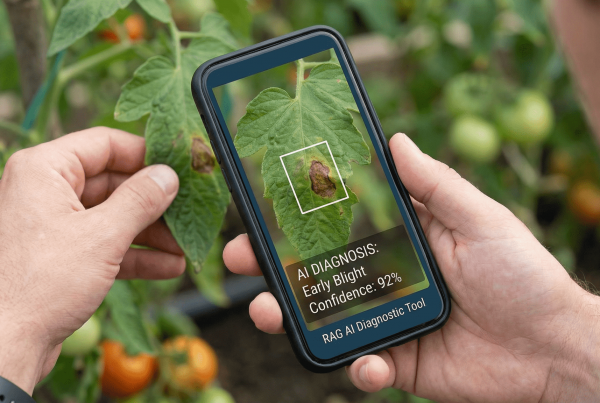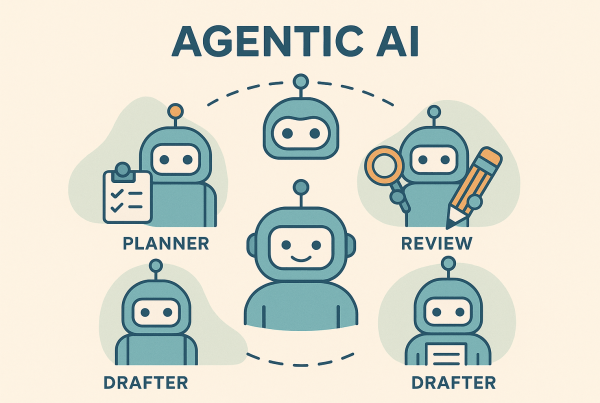The digital landscape is experiencing a seismic shift. While traditional search engines have dominated how we find information online for decades, AI chatbots are rapidly carving out their own territory in the information discovery ecosystem.
The Numbers Don’t Lie: AI’s Explosive Growth
A groundbreaking study by OneLittleWeb analyzing web traffic from April 2024 to March 2025 reveals some eye-opening statistics:
- AI chatbots saw an 80.92% year-over-year increase in traffic, reaching 55.2 billion visits
- Traditional search engines experienced a slight 0.51% decline during the same period
- Despite this growth differential, chatbots still only account for 2.96% of search engine traffic
This might seem like a David vs. Goliath scenario with search engines firmly in control, but the trajectory matters more than the current state. In March 2025 alone, search engines recorded 5.5 billion daily visits compared to chatbots’ 233.1 million. A gap that’s rapidly narrowing.
From SEO to GEO: A New Paradigm Emerges
In my previous discussions about digital visibility, I’ve mentioned how SEO is evolving into what I call GEO (Generative Engine Optimization). This isn’t just theoretical, it’s happening now, and faster than many anticipated.
Recently, I discovered a fascinating tool that showcases how brands and services rank in generative AI responses. Essentially, it’s a leaderboard of what ChatGPT and similar tools consider “the best” across various categories. Here are some examples from Switzerland:
- 🧑💻 Best digital agency in Zurich → Webrepublic AG
- 🥙 Best kebab in Zurich → AYVERDIS AG
- 🏙️ Most beautiful city in Switzerland → Zurich
- 🦒 Best zoo in Switzerland → Zoo Basel
- 🧀 Best Swiss cheese → Gruyère AOP
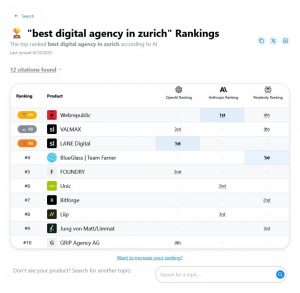
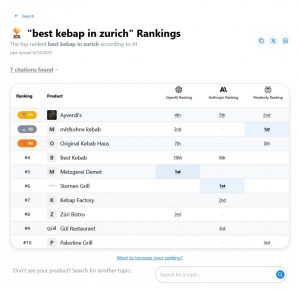
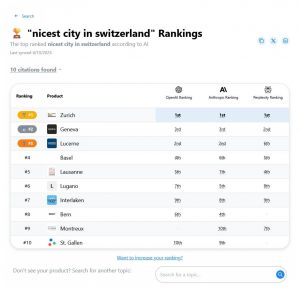
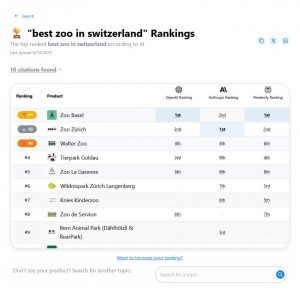
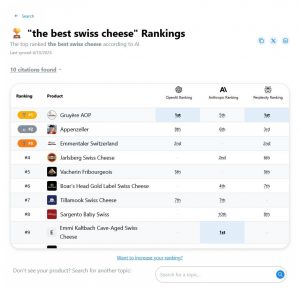
These results highlight a fundamental shift in how digital visibility works. It’s no longer just about appearing on the first page of Google—it’s about being considered the authority by AI systems that synthesize information from across the web.
You can try the tool for free here: https://productrank.ai/
The Business Impact: More Than Just Traffic
While traffic numbers tell part of the story, the deeper implications for businesses are profound.
1. The Referral Crisis
Perhaps the most concerning statistic for businesses is the dramatic difference in referral rates:
- Google search results: 8.6% referral rate
- AI search engines: 0.74% referral rate
- AI chatbots: Just 0.33% referral rate
This means that for every 1,000 times your content is used to answer a query in an AI chatbot, you might only receive 3-4 visitors to your website. The implications for businesses that rely on web traffic are significant.
2. The News Industry Canary
A Stanford University study (“The News Pipeline,” May 2025) highlights how severely this is already affecting the news industry:
- AI agents answer user questions directly without driving clicks to publisher websites
- Traditional revenue streams from subscriptions and advertising are eroding
- Publishers are losing control over distribution, monetization, and brand loyalty
While news publishers may be the first to feel this impact acutely, they won’t be the last. Any business that relies on content discovery faces similar challenges.
3. The Rise of Direct Relationships
As intermediary channels become less reliable for driving traffic, direct relationships with customers become more valuable than ever. Email lists, customer communities, and other owned channels are appreciating in value.
What Successful Businesses Are Doing Now
Forward-thinking organizations aren’t waiting for the full impact to hit. They’re already adapting:
1. Developing Dual Optimization Strategies
Smart businesses are simultaneously optimizing for traditional search (SEO) while building capabilities for generative AI optimization (GEO). This includes creating content with clearly structured information that AI systems can easily extract and reference.
2. Focusing on Ultimate Authority
Since AI systems attempt to identify the most authoritative sources when generating responses, businesses are doubling down on establishing themselves as the definitive resource in their field. This means creating comprehensive, factually accurate content backed by data and expertise.
3. Building AI-Native Experiences
Rather than fighting the trend, some businesses are embracing it by creating their own AI-powered experiences. This allows them to maintain control over the customer relationship while still delivering the convenience of AI-generated responses.
4. Monitoring AI Mentions and Placements
New tools are emerging that help businesses understand when and how they’re referenced in AI-generated content. This “AI monitoring” is becoming as important as traditional search ranking tracking.
Are You Still Using Search Engines?
The way we search for information is undergoing a fascinating transformation. Many users are now turning to Large Language Models instead of traditional search engines for their information needs. What about you?
Where LLMs Shine:
- Converting vague descriptions into precise terminology
- Identifying patterns and relationships across diverse sources
- Facilitating natural conversations with contextual follow-up capabilities
- Delivering concise summaries of complex topics
Search Engines Continued Strengths:
- Discovering primary, authoritative sources
- Direct navigation to familiar websites or documentation
- Enabling independent evaluation of multiple sources
- Providing the most up-to-date information not captured in LLM training
My observation is that this isn’t an either/or scenario. It’s about selecting the appropriate tool for specific information needs. Sometimes the precision of a search engine is essential. Other times, the contextual intelligence of an LLM provides superior results.
This reality is driving search engines toward hybrid approaches. Kagi is emerging as a notable player in this space, offering a search experience that blends traditional results with AI-generated answers. Similarly, Google’s AI Overview feature is selectively incorporating AI responses with source attributions.
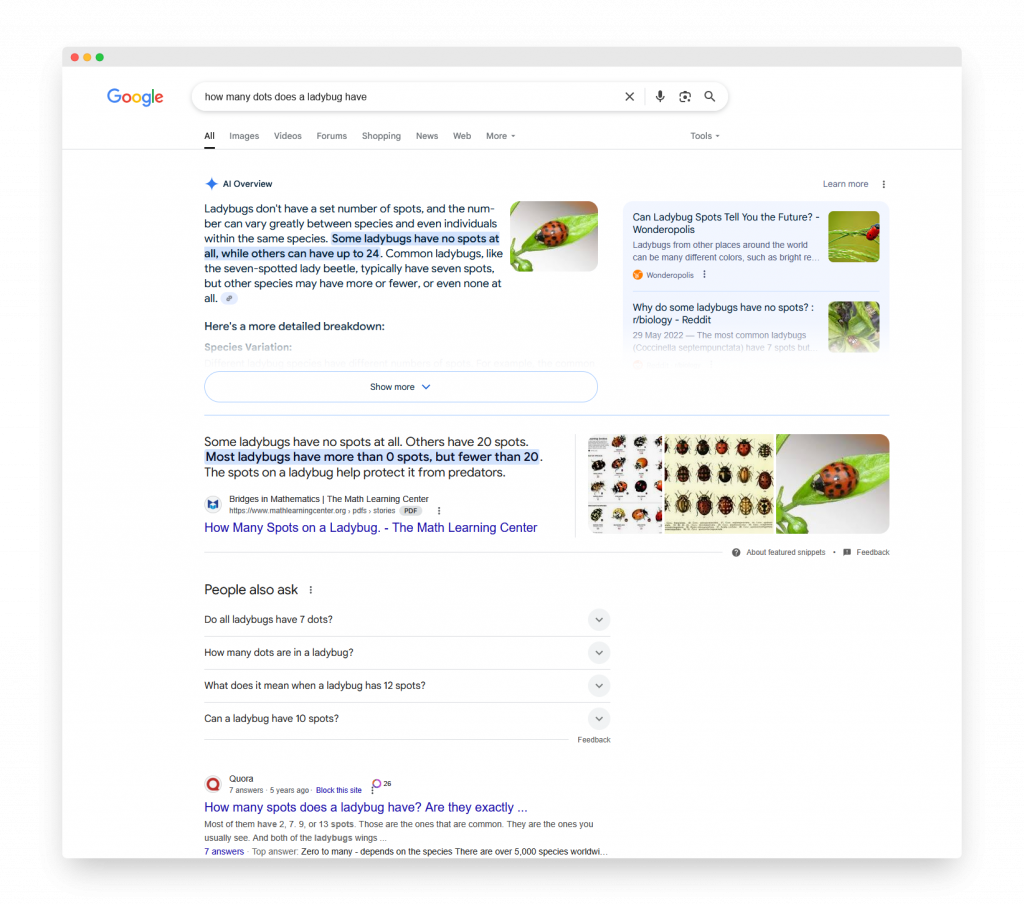
I’d be interested to know:
- Are you still using traditional search engines, or are you already asking ChatGPT & Co.? In which cases do you use which?
- When do you trust an AI answer versus a traditional search response? How do you verify the quality of information you receive?
- How is this changing the discoverability of our products and services? SEO (Search Engine Optimization) is gradually becoming GEO (Generative Engine Optimization). Are you already taking active steps in this direction?
